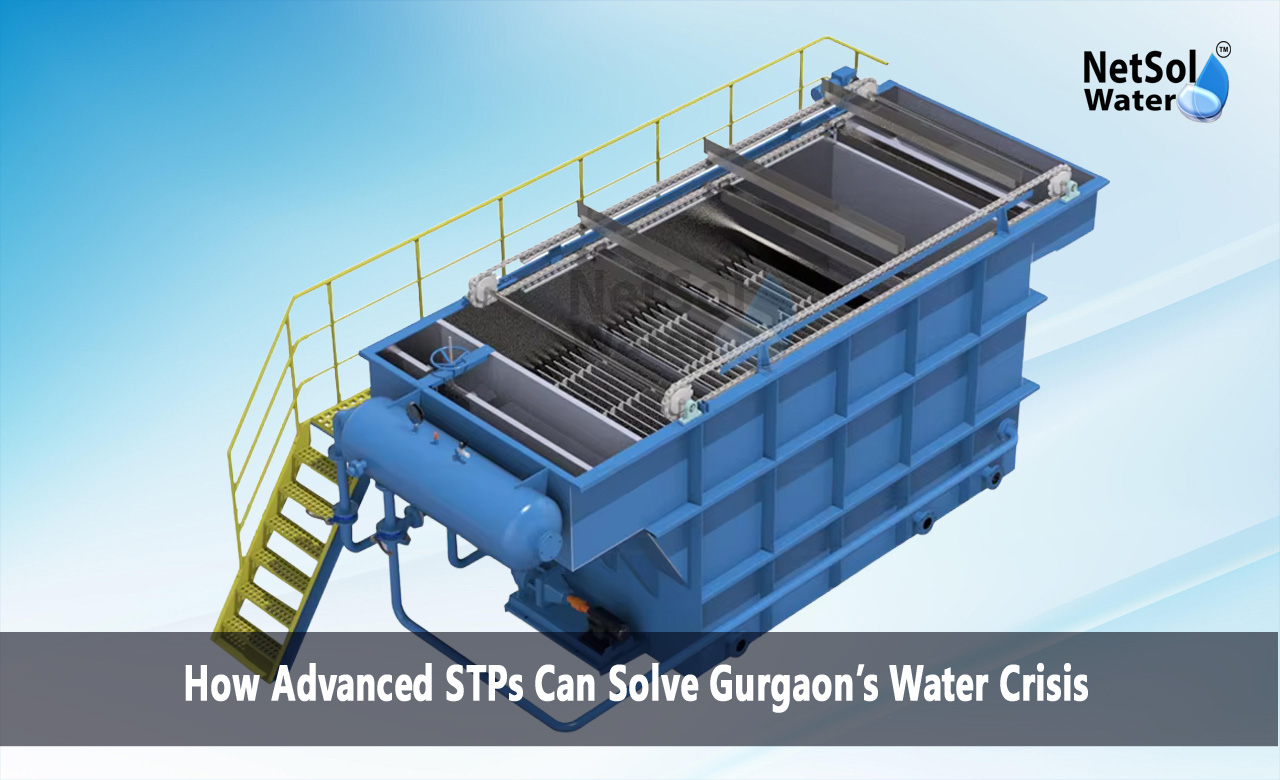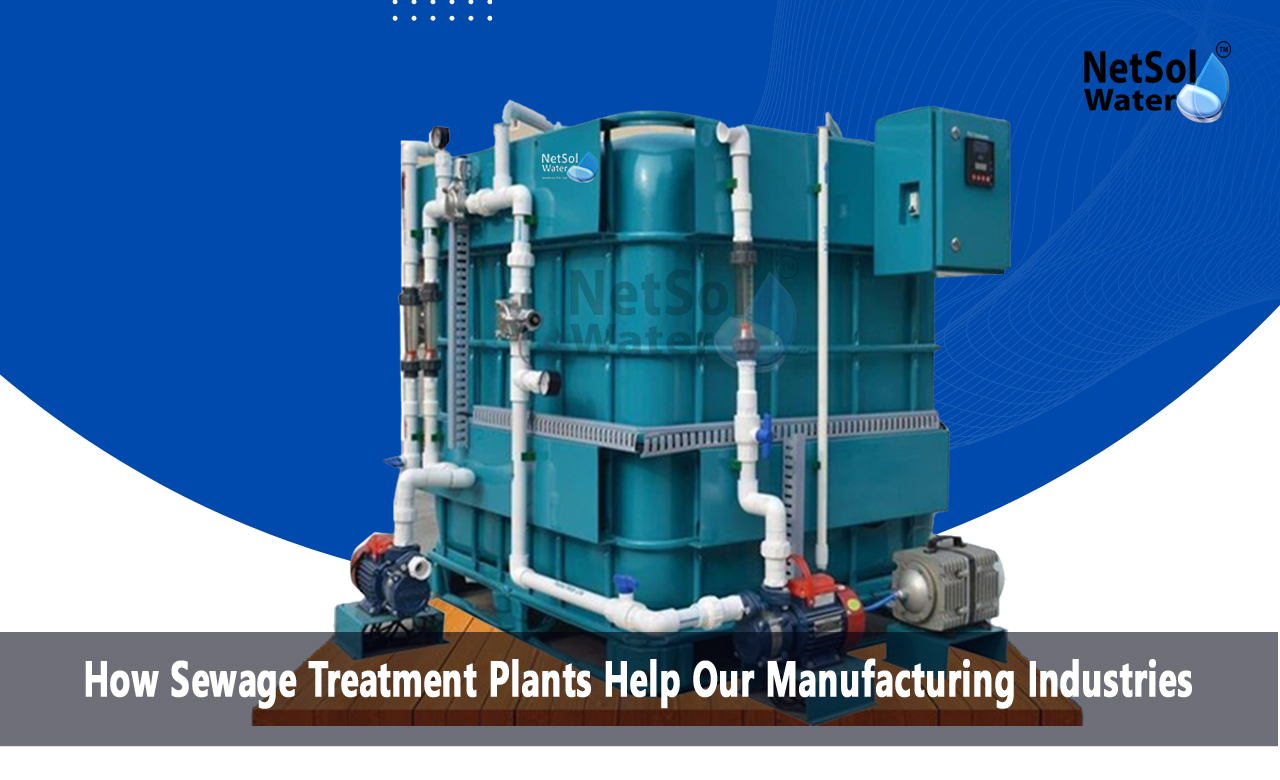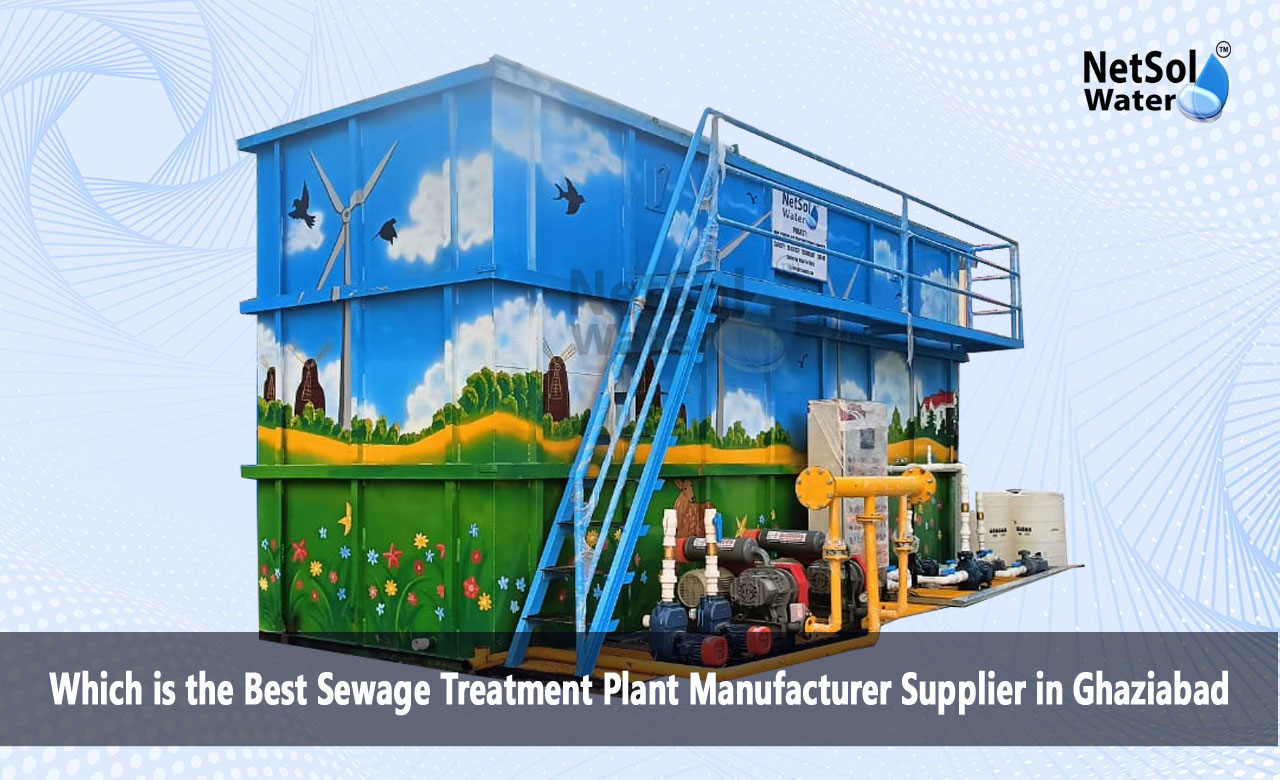How Advanced STPs and Sewage Treatment Plant Manufacturers in Gurgaon Can Solve the City’s Water Crisis

How Advanced STPs and Sewage Treatment Plant Manufacturers in Gurgaon Can Solve the City’s Water Crisis?
Gurgaon generates over 150 million liters per day (MLD) of sewage, yet treats only 60% of it. The rest flows untreated into the Aravalli foothills and nearby water bodies, contaminating groundwater and worsening the city’s water scarcity. With rapid urbanization and depleting aquifers, Gurgaon’s water crisis demands urgent intervention—and advanced sewage treatment plants (STPs), supported by leading Sewage Treatment Plant Manufacturers in Gurgaon, could be the game-changer.
The Problem: Gurgaon’s Sewage Treatment Challenges
Gurgaon, home to over 2 million people, faces a dual crisis: water scarcity and pollution. According to the Haryana State Pollution Control Board (HSPCB), the city’s sewage treatment capacity is severely inadequate, leading to:
Groundwater Contamination: Unprocessed sewage seeps into the ground, raising nitrate and heavy metal levels in borewell water.
River Pollution: The Najafgarh drain, which carries untreated waste, is a major contributor to Yamuna’s pollution.
Water Shortages: Gurgaon’s groundwater table has been falling by 1-2 meters per year, forcing reliance on expensive tanker water.
A 2023 report by the Central Pollution Control Board (CPCB) revealed that 40% of Gurgaon’s STPs operate below capacity, and many lack advanced filtration systems. Additionally, industries often bypass regulations, discharging untreated effluents into municipal sewers.
The Solution: Advanced STP Technologies from Gurgaon’s Leading Manufacturers
To bridge the treatment gap, Gurgaon needs modern, efficient, and scalable STP solutions—many of which are already being deployed by top Sewage Treatment Plant Manufacturers in Gurgaon. Here are key innovations that can make a difference:
1. Moving Bed Biofilm Reactor (MBBR) Technology
MBBR is a compact, energy-efficient biological treatment process that uses floating plastic carriers to boost microbial activity. Compared to conventional activated sludge systems, MBBR offers:
- Higher treatment efficiency (up to 95% BOD removal).
- Smaller footprint, ideal for space-constrained urban areas.
- Lower sludge production, reducing disposal costs.
Case Study: A Gurgaon residential society retrofitted its STP with MBBR technology supplied by a leading Sewage Treatment Plant Manufacturer in Gurgaon, cutting operational costs by 30% while improving treated water quality.
2. IoT-Based Real-Time Monitoring
Many STPs fail due to poor maintenance and irregular monitoring. IoT-enabled sensors, now offered by innovative STP manufacturers in Gurgaon, can track:
- pH, COD, and TSS levels in real time.
- Energy consumption and pump efficiency.
- Alerts for leaks or system failures.
The Delhi Jal Board’s pilot project with IoT STPs reduced downtime by 40%, a model Gurgaon could replicate with support from local STP providers.
3. Membrane Bioreactor (MBR) Systems
For high-end reuse (e.g., landscaping, industrial cooling), MBR technology combines ultrafiltration with biological treatment, producing near-potable quality water. While costly upfront, MBRs reduce long-term reliance on freshwater. Several Sewage Treatment Plant Manufacturers in Gurgaon specialize in these systems for commercial and industrial applications.
4. Decentralized STPs for Societies and Industries
Instead of relying solely on large centralized plants, apartment complexes and commercial hubs can install decentralized STPs from reputed STP suppliers in Gurgaon. These systems:
- Reduce pressure on city infrastructure.
- Enable local water reuse for flushing, gardening, and cooling.
Policy Recommendations for Sustainable Water Management
Technology alone won’t fix Gurgaon’s crisis—stronger policies and enforcement are critical.
1. Mandate STP Upgrades for High-Rises & Industries
Enforce CPCB’s 2020 standards requiring all societies >20,000 sqm to install STPs from approved Sewage Treatment Plant Manufacturers in Gurgaon.
Penalize non-compliant industries and ensure zero effluent discharge (ZED) norms.
2. Incentivize Water Reuse
Offer tax rebates for buildings using treated wastewater from certified STP providers.
Implement dual piping systems to separate potable and recycled water lines.
3. Public-Private Partnerships (PPPs) for STP Maintenance
Outsource operations to specialized firms, including Gurgaon-based STP manufacturers, to improve efficiency.
Introduce performance-linked contracts to ensure compliance.
4. Community Awareness & Rainwater Harvesting
Educate residents on water conservation and STP benefits, with support from local STP companies.
Make rainwater harvesting compulsory to recharge groundwater.
Call to Action: A Blueprint for Gurgaon’s Water Security
Gurgaon’s water crisis is solvable, but requires:
✔ Upgrading aging STPs with MBBR, IoT, and MBR tech from reliable Sewage Treatment Plant Manufacturers in Gurgaon.
✔ Strict enforcement of industrial effluent norms, with support from local STP experts.
✔ Decentralized treatment to reduce load on city infrastructure.
✔ Government-citizen collaboration for sustainable usage.
Cities like Bengaluru and Chennai have shown that advanced wastewater management can mitigate scarcity. Gurgaon must act now—by leveraging its local STP manufacturing expertise—or face a parched future.
The choice is clear: Treat sewage today, or thirst tomorrow.
Note: IndiBlogHub features both user-submitted and editorial content. We do not verify third-party contributions. Read our Disclaimer and Privacy Policyfor details.





